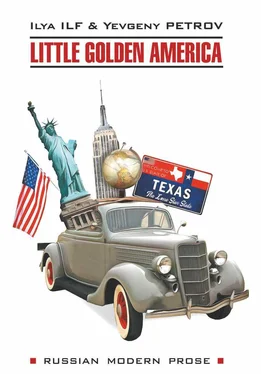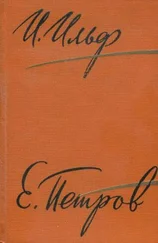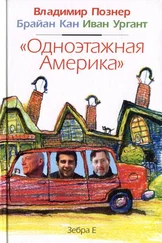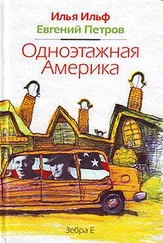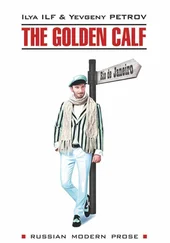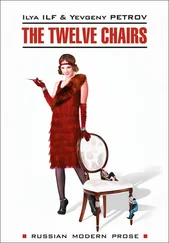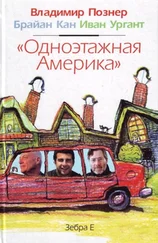The night lodgers did not object. Any god with a cup of coffee and a slice of bread was fairly acceptable. Let us sing then, brothers, to the glory of the coffee god!
And the throats, which for half a century had belched forth only horrible oaths, drowsily began to blare now the glory of the Lord.
We again walked through some slums and again did not know where we were. With thunder and lightning, trains raced overhead along the railroad stockades of the elevated railway. Young men in light-coloured hats crowded around drug-stores, exchanging curt phrases. Their manner was exactly like that of the young men who in Warsaw populate Krakhmalnaya Street. In Warsaw a gentleman from Krakhmalnaya is not considered exactly God’s precious little ewe lamb. It is sheer luck if he turns out to be merely a thief, for he might be something much worse than that.
Late at night we returned to our hotel, not yet disappointed with New York nor elated over it, but rather disturbed by its hugeness, its wealth, and its poverty.
3. What Can Be Seen From a Hotel Window
OUR FIRST hours in New York – the walk through the city at night and then the return to the hotel – will always remain with us as a memorable event.
Yet, as a matter of fact, nothing unusual had occurred.
We walked into the very ordinary marble vestibule of the hotel. To the right, behind a smooth wooden railing, worked two young clerks. Both of them had pale, smoothly shaven cheeks and black little narrow moustaches. Beyond them sat a girl cashier at a calculating machine. On the left was located the tobacco stand. In its glass case open wooden boxes of cigars stood next to each other. On the white gleaming surface of the inside covers of the boxes were displayed old-fashioned handsome men with thick moustaches and pink cheeks, gold and silver medals, scutcheons, green palms and Negresses gathering tobacco. In the corners stood the prices: 5, 10, or 15: cents apiece, or 15 cents for two, or 10 cents for three. Even more tightly than the cigars lay small packages of cigarettes in soft covers, also wrapped in cellophane. Americansseem to smoke mostly “Lucky Strike,” a dark green package with a red circle in the middle; “Chesterfield,” a white package with a gold inscription; and “Camel,” a yellowish package bearing the picture of a brown camel.
The entire wall opposite the entrance to the vestibule was occupied by spacious elevators with gilded doors. The doors opened on the right, on the left, or in the middle, disclosing inside the elevator the Negro who held on with his hand to the iron steering-gear and who was dressed in bright coloured trousers with gold braid and in a green jacket with ornate twisted shoulder straps. Just as at the Northern Railway Station in Moscow the train announcer loudly informs people going to summer resorts that the next train is bound without stops for Mytishchi,but beyond that will make all the stops, so here the Negroes announced that the elevator was going to the sixteenth floor, or to the thirty-second floor, with the first stop likewise at the sixteenth floor, Eventually we fathomed this little ruse of the management’s – on the sixteenth floor was located its restaurant and cafeteria.
We walked into the elevator, and it rushed up. On the way the elevator stopped, the Negro opened the door, cried “Up!” and the passengers called out the numbers of their floors. A woman entered. All the men removed their hats and travelled on without hats. We followed suit. That was the first American custom we learned. But acquaintance with the customs of a foreign country is not so easy and is almost always accompanied by confusion. Several days later we were going up in an elevator to our publishers. A woman entered, and with the expeditiousness of old experienced New Yorkers we took off our hats. The other men did not follow our knightly example, however, and even regarded us with curiosity. We learned that hats should be taken off only in private and hotel elevators; whereas, in buildings where people transact business one may keep one’s hat on.
At the twenty-seventh story we left the elevator and walked along a narrow corridor to our rooms. The large second-rate New York hotels in the centre of the city are built very economically. Their corridors are narrow, their rooms, although expensive, are small, and their ceilings are of standard height – that is, rather low. The client poses before the builder the problem of squeezing into a skyscraper as many rooms as possible. These small rooms, however, are clean and comfortable. They always have hot and cold water, a shower, stationery, telegraph blanks, postcards with views of the hotel, laundry bags, and printed laundry blanks on which you merely place figures indicating the number of pieces of soiled laundry being sent out. Laundering is done quickly and unusually well in America. The ironed shirts look better than new ones on display in a store window. And each one of them is placed in a paper pocket, around which is a paper ribbon with the trade-mark of the laundry, and all of it is neatly pinned together, with pins even around the sleeves. Moreover, the laundry is brought back mended and the socks darned. In America such comforts are not at all a sign of luxury. They are standardized and accessible.
Upon entering the room we began to look for the switch, and for a long time could not understand how electricity is turned on here. At first we wandered through the rooms in the dark, then we struck matches, felt our way along the walls, investigated the doors and windows, but there was no switch anywhere. Several times in sheer desperation we would sit down to rest in the darkness. At last we found it. Near every lamp hung a short thin chain with a little ball on the end. A pull on the little chain and the electricity is lighted. Another pull and it is out. The beds had not been made up for the night, so we began to look for the button of the bell to summon the maid. But there was no button. We looked everywhere. We pulled all the likely strings, but that did us no good. Then we understood that the servants must be called by telephone. We rang for the porter and called for the maid.
In the room was furniture which subsequently we saw in all the hotels of America without exception – in the East, the West, and the South. We did not visit the North. But there is every reason to suppose that even there we would have found exactly the same furniture as in New York: a brown commode with a mirror, metal bedsteads trickily painted to look like wood, several soft easy-chairs, a rocking-chair, portable plug lamps (bridge lamps), on high thin legs with large cardboard lampshades.
On the commode we found a fat little book in a black cover. On the book was the gold trade-mark of the hotel. The book proved to be a Bible. This ancient composition had been adapted for business people whose time is limited. On the first page was a table of contents especially composed by the solicitous management of the hotel:
“For allaying spiritual doubts – page so-and-so, text so-and-so.
“For family troubles – page so-and-so, text so-and-so.
“For financial troubles – page…, text…
“For success in business – page…, text…”
That page was somewhat greasy.
We opened the windows. They had to be opened in a peculiar American way, not at all as in Europe. They had to be raised, like windows in a railway carriage.
The windows of our little rooms looked out on three sides. Below lay New York at night.
What can be more alluring than a strange city’s lights thickly sown throughout that immense and foreign world which had gone to sleep on the shores of the Atlantic Ocean! From over there, from the side of the ocean, a warm wind wafted. Quite close rose several skyscrapers. It seemed as though one could touch them with one’s hand. Their lighted windows could be counted. Farther away the lights became more and more dense. Among them were especially bright ones, which stretched out in straight and in bent chains (these must have been street lamps). Beyond gleamed a sheer gold dust of tiny lights, and then a dark unlighted swath. (The Hudson? Or was that the East River?) And again the gold mists of boroughs, constellations of unknown streets and squares. In that world of lights, which at first seemed stationary, one could note a certain movement. Now down the river slowly floated the red light of a cutter. A tiny automobile passed down the street. At times, suddenly, somewhere on the other shore of the river, a light as little as a tiny particle of dust would flash and go out. Surely one of (he seven million denizens of New York had turned off the light and gone to bed! Who was he? A clerk? An employee of the elevated railroad? Perhaps a lonely girl had gone to sleep – some salesgirl (there are so many of them in New York). And at this very moment, lying under two thin blankets, stirred by the steamer whistles of the Hudson, was she seeing in her dreams a million dollars?
Читать дальше
